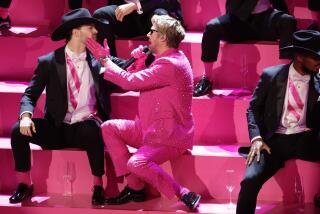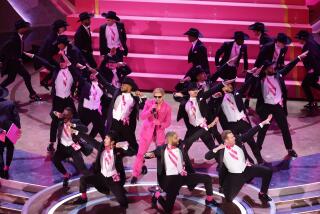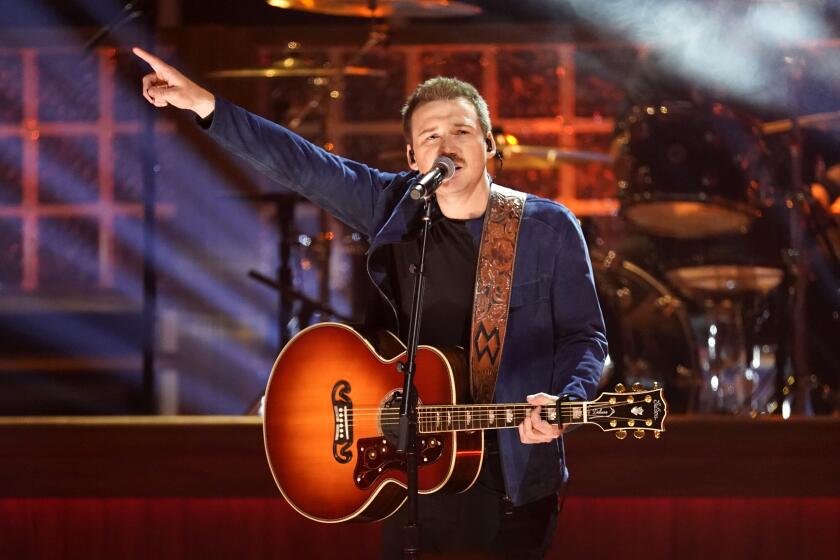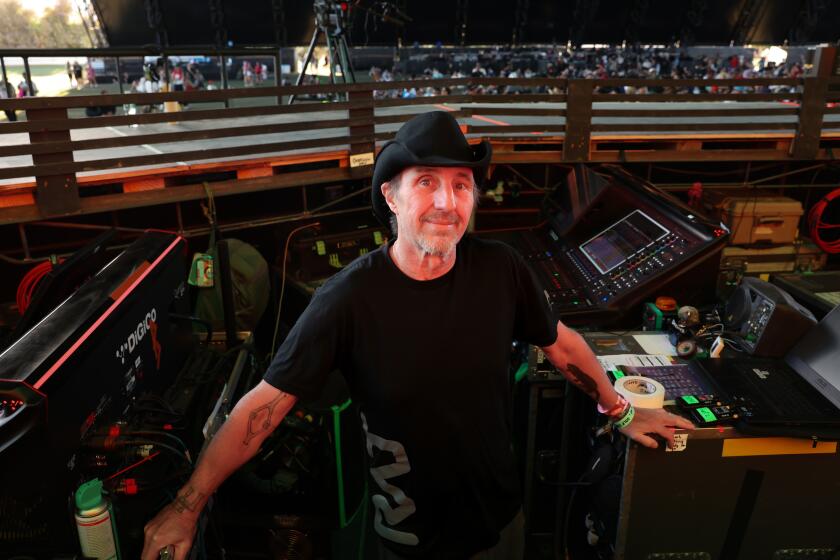James Horner: How ‘My Heart Will Go On’ set pop’s tempo in 1998
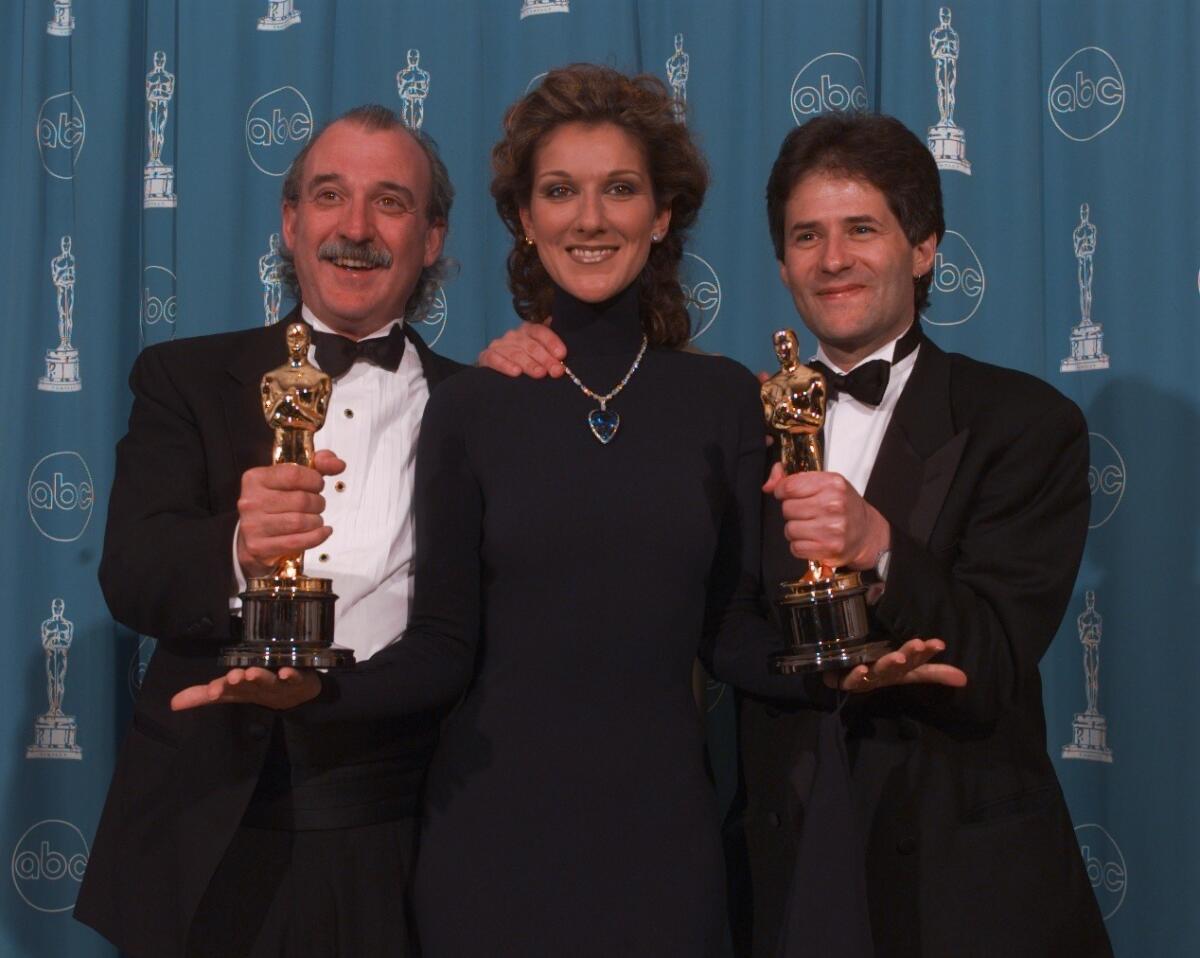
Will Jennings, left, Celine Dion and James Horner at the 70th Academy Awards at the Shrine Auditorium in Los Angeles in 1998.
A decade and a half ago, “My Heart Will Go On” did even more than it promised.
Co-written by composer James Horner, missing since a plane he owned crashed Monday in the Los Padres National Forest, the theme from “Titanic” condensed that movie’s epic melodrama into five endlessly re-playable minutes of sweeping faux-Celtic majesty. The song also solidified Celine Dion’s place as one of music’s most reliable (and shameless) emoters, a role that soon led the singer to huge success in Las Vegas.
But “My Heart Will Go On” had another effect too: It helped make 1998 an amazing year for big pop ballads.
Though it went on to sell more than 10 million copies in the United States alone (and win an Academy Award and two Grammys), Dion’s signature tune spent a relatively brief two weeks at No. 1 on the Billboard Hot 100 early that year. Yet looking back it seems that was only because the song inspired so much competition.
Subsequent chart-toppers in 1998 included Mariah Carey’s “My All,” Aerosmith’s “I Don’t Want to Miss a Thing” (which not only shared sonic qualities with “My Heart Will Go On” but similarly featured in a Hollywood blockbuster) and – hey, what do you know? – “I’m Your Angel,” Dion’s grandstanding duet with R. Kelly.
MORE: Oscar-winning composer James Horner’s death in plane crash confirmed
And that’s not even counting the numerous ballads that blanketed pop radio without reaching No. 1 that year, such as Shania Twain’s “You’re Still the One,” Edwin McCain’s “I’ll Be” and Deborah Cox’s “Nobody’s Supposed to Be Here.” Even the Goo Goo Dolls, largely known to that point as a scruffy rock act, scored a huge hit with “Iris,” their orchestral weeper from the Nicolas Cage-Meg Ryan romance “City of Angels.”
That kind of slow-and-low saturation is virtually unimaginable today, at a moment when ballads are the exception rather than the norm on the Top 40. (As Ed Sheeran recently told me, “There’s only ever a slot for one.”)
But thanks in part to the way Horner’s composition connected with listeners, the music industry – always eager to duplicate success – happily slowed its tempo in “Titanic’s” immediate wake.
Twitter: @mikaelwood
More to Read
The biggest entertainment stories
Get our big stories about Hollywood, film, television, music, arts, culture and more right in your inbox as soon as they publish.
You may occasionally receive promotional content from the Los Angeles Times.
